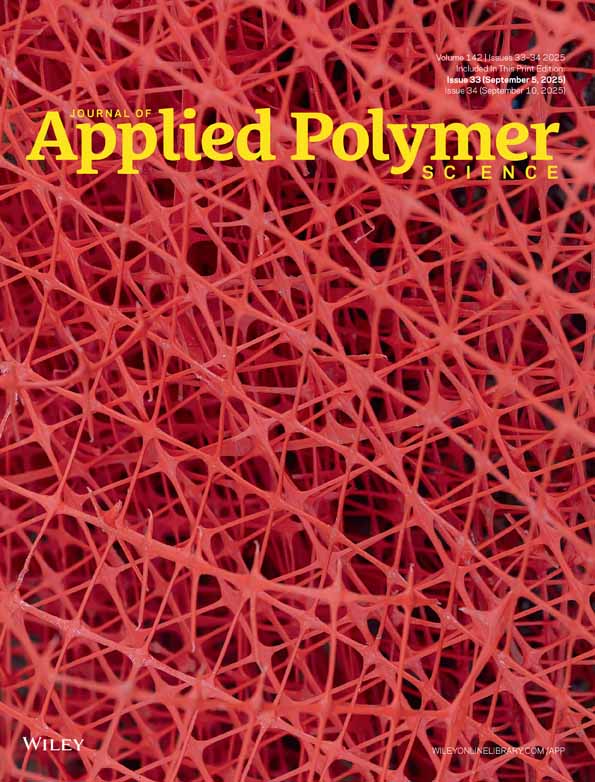Synthesis and characterization of degradable copoly(trans-4-hydroxy-L-proline/ϵ-caprolactone)
Abstract
The melt polycondensation reaction of N-protected trans-4-hydroxy-L-proline (N-Z-Hpr) and ϵ-caprolactone (ϵ-CL) over a wide range of molar fractions in the feed produced new and degradable poly(N-Z-Hpr-co-ϵ-CL)s with stannous octoate as a catalyst. The optimal reaction conditions for the synthesis of the copolymers were obtained with 1.5 wt % stannous octoate at 140°C for 24 h. The synthesized copolymers were characterized by IR spectrophotometry, 1H NMR, differential scanning calorimetry, and Ubbelohde viscometry. The values of the inherent viscosity (ηinh) and glass-transition temperature (Tg) of the copolymers depended on the molar fractions of N-Z-Hpr. With an increase in the trans-4-hydroxy-N-benzyloxycarbonyl-L-proline (N-CBz-Hpr) feed from 10 to 90 mol %, a decrease in ηinh from 2.47 to 1.05 dL/g, and an increase in Tg from −48 to 49°C were observed. The in vitro degradation of these poly(N-CBz-Hpr-co-ϵ-CL)s was evaluated from weight-loss measurements. © 2003 Wiley Periodicals, Inc. J Appl Polym Sci 88: 3176–3182, 2003




